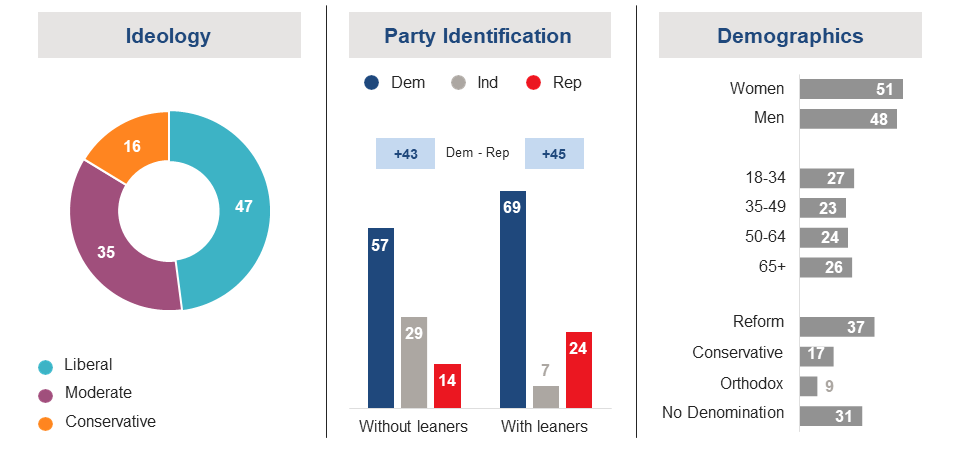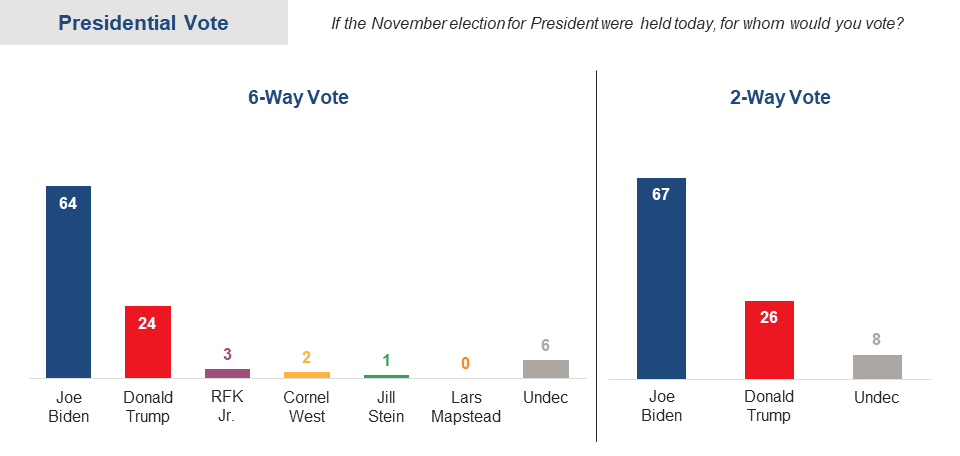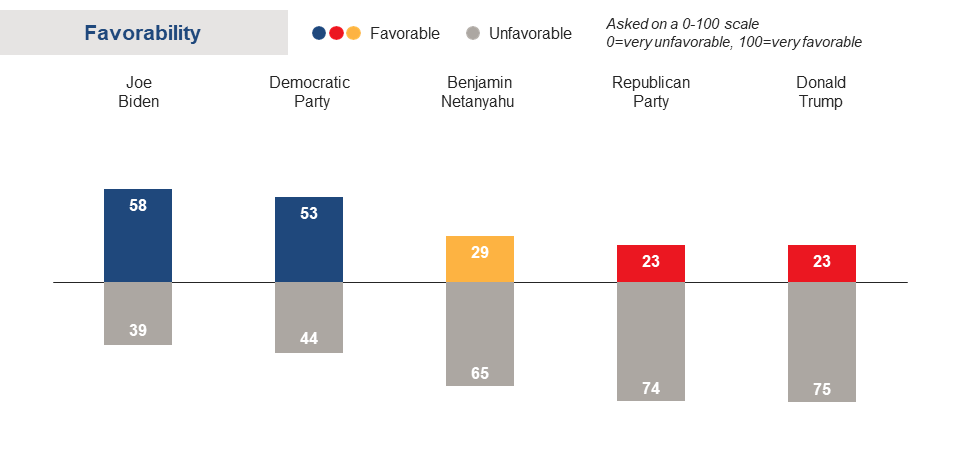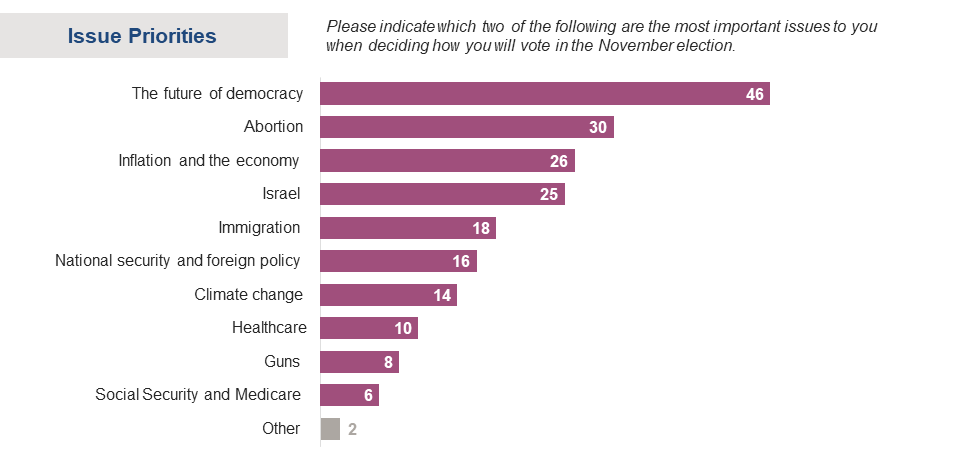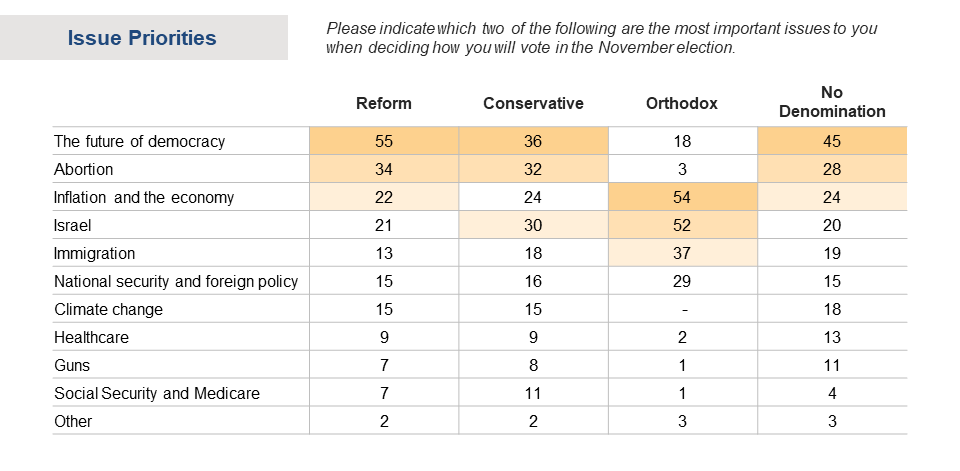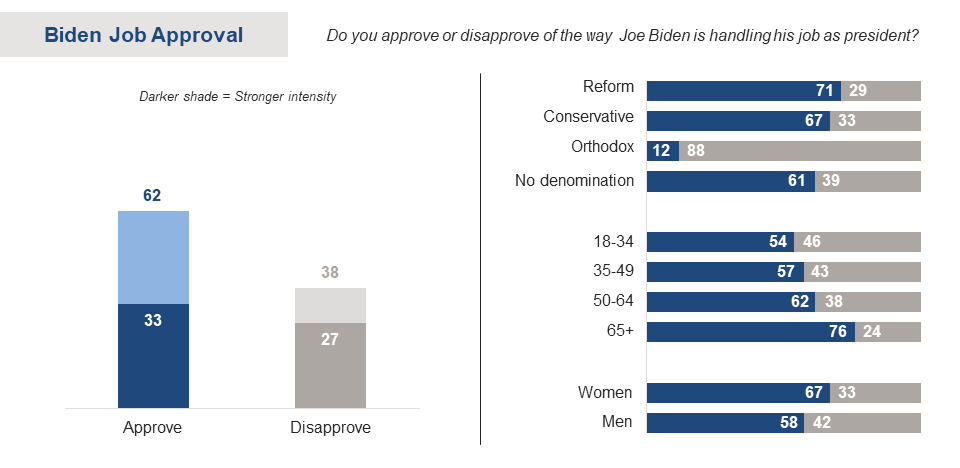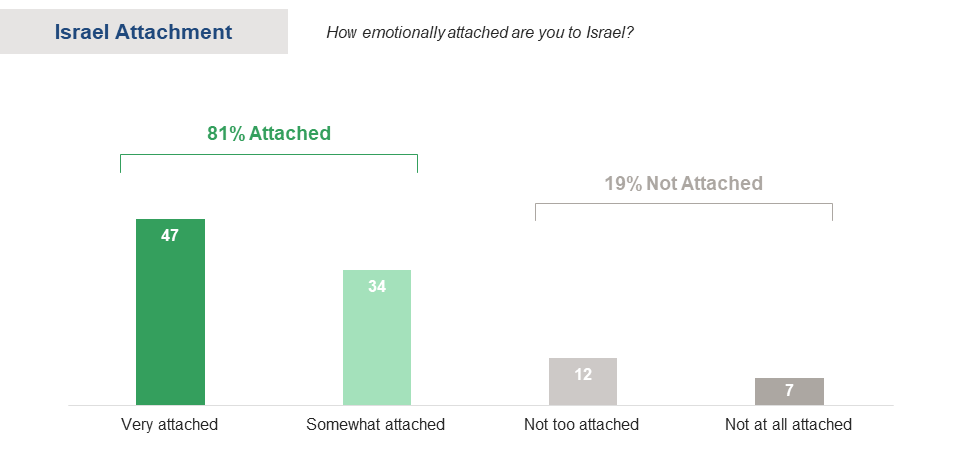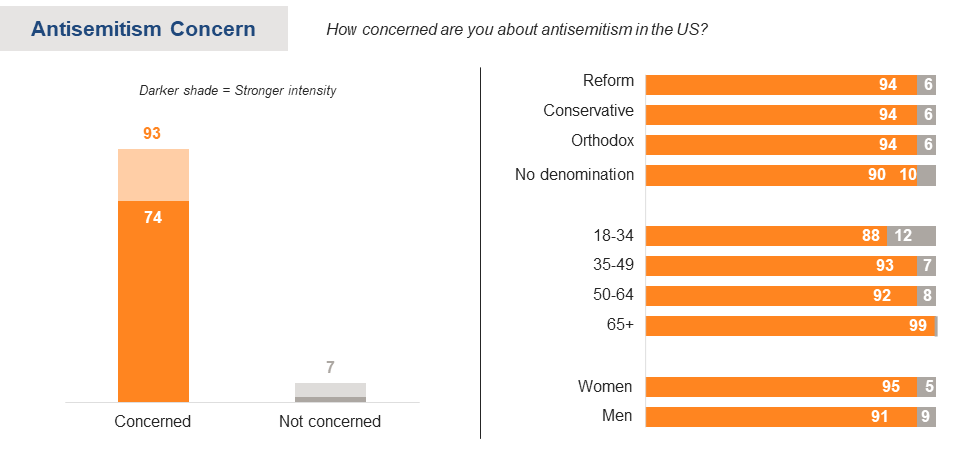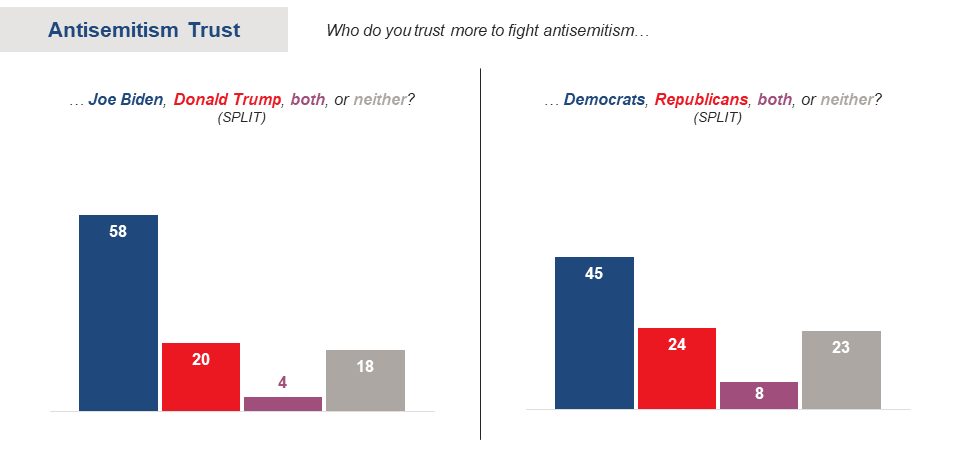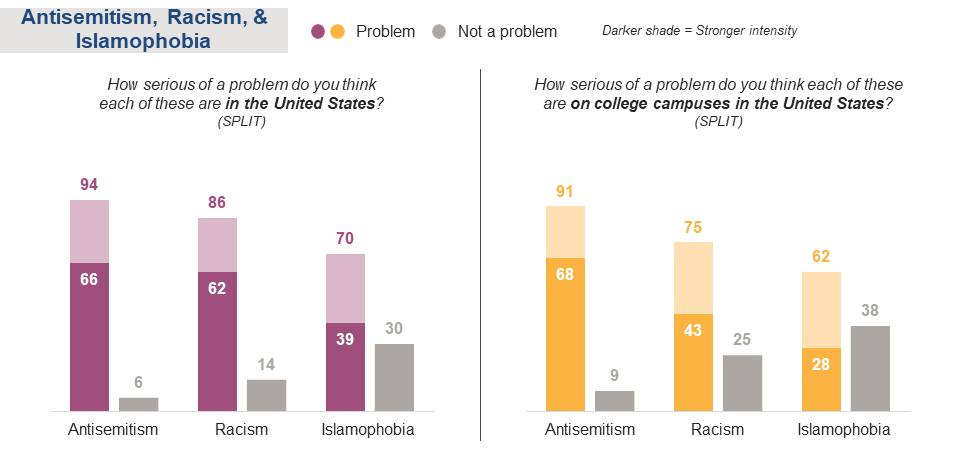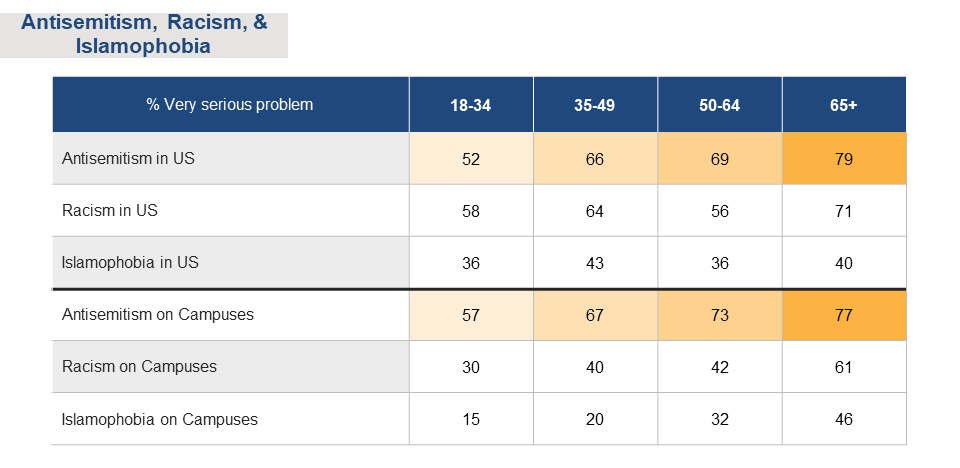April 2024 National Survey Of Jewish Voters
A new survey from the non-partisan Jewish Electorate Institute indicated that 67% of Jewish voters would vote for President Biden’s reelection were the ballot held at the time of the poll. The survey, conducted from April 16-21, 2024, by GBAO Strategies, measured the attitudes of the American Jewish electorate regarding their preferences on subjects including political identification, views on candidates for the 2024 presidential election, and the threat of antisemitism.
Respondents compared President Biden with former President Trump and third-party candidates in a 2024 general election scenario. In a head-to-head matchup, 67% of Jewish voters say they would support President Biden over former President Trump, who would have the support of only 26% of Jewish voters.
Respondents also indicated high levels of attachment to the State of Israel and the Democratic Party. 57% percent of respondents described themselves as Democrats, 27% as independents, and only 14% identified as Republicans. 81% of Jewish voters processed being somewhat or very emotionally attached to Israel.
Other key takeaways from the poll include:
- President Biden has a job approval of 62% among Jewish voters and maintains a significantly higher approval rating than among the general population
- President Biden is trusted far more than Donald Trump to fight antisemitism (58-20%)
- 93% of respondents are concerned about antisemitism in the US
- 93% of respondents believe antisemitism is a problem on College Campuses
Very Democratic & Liberal Constituency
Biden Has Overwhelming Lead Over Trump Among Jewish Voters
Jews Hold Positive Views Of Biden/Democrats & Are Very Negative Toward Trump/Republicans
Future Of Democracy Is Top Issue For 2024 Election, Followed By Abortion, Inflation/Economy, & Israel
Democracy Is The Top Issue For Reform, Conservative, No Denomination
Biden Job Approval Is Strong; Highest Among Older Voters
Attachment To Israel High
Concern About Antisemitism Is Universally High Among American Jews
Biden & Democrats Continue To Be More Trusted To Fight Antisemitism Than Trump & Republicans
Bigotry Seen As Serious Problem In US & On Campuses; Antisemitism Viewed As Bigger Problem Than Racism & Islamophobia
Younger Voters Less Concerned With Antisemitism Than Older Voters
Methodology
- GBAO designed the questionnaire for this national survey of American Jews for the Jewish Electorate Institute (JEI). The survey was conducted April 16-21, 2024 and included interviews with 800 self- identified American Jews who are registered to vote. The survey is subject to a margin of error of +/- 3.5 percentage points at the 95 percent confidence level. Sub-groups are subject to a higher margin of error.
- The survey sample was drawn from a national voter file, consisting of all registered voters in the United States. Respondents with a likelihood of being Jewish, based on their first or last name or their geography, were contacted by text, and then took the survey on a secure link on their phone or computer if they identified themselves as Jewish.
- All respondents were asked at the beginning of the survey whether they consider themselves Jewish, using the same question wording as the 2020 Pew Research Center study, “Jewish Americans in 2020.”
- The sample was weighted to Pew’s demographic results on key variables, such as gender, denomination, age, and synagogue membership.




